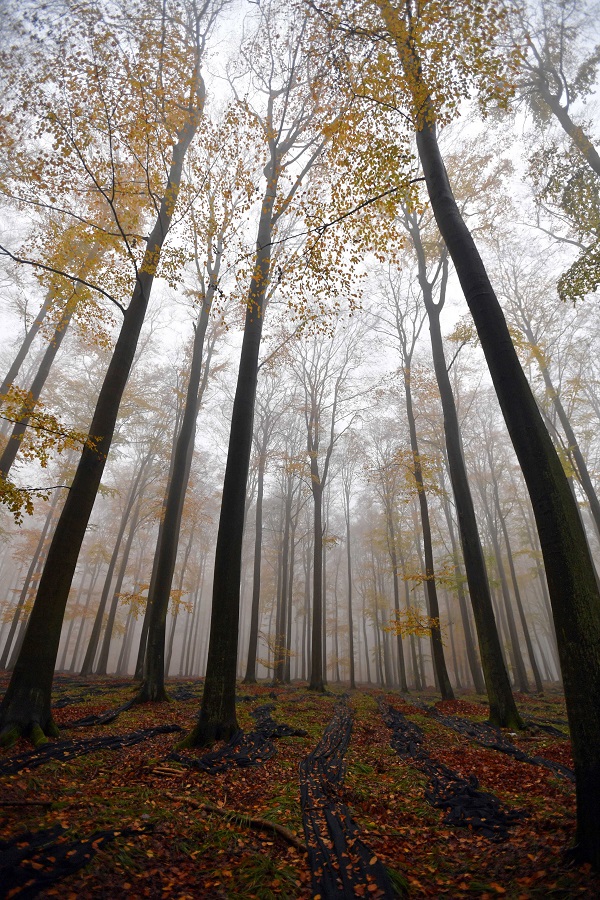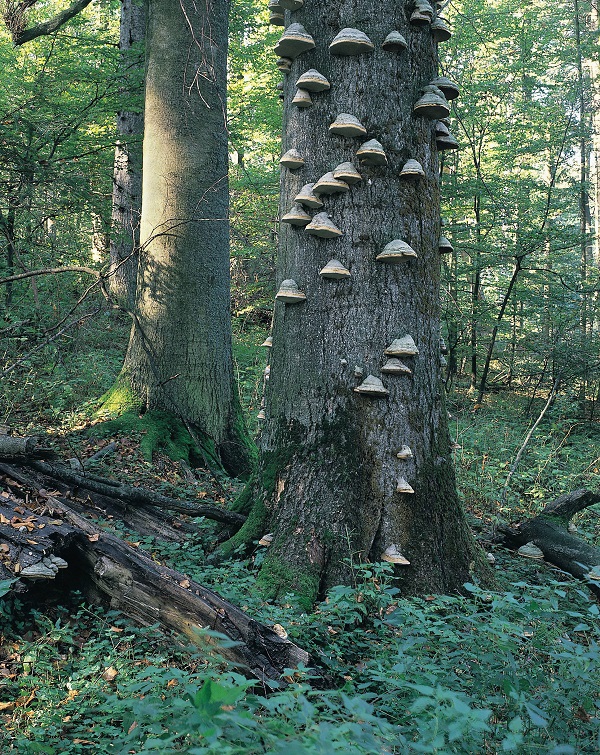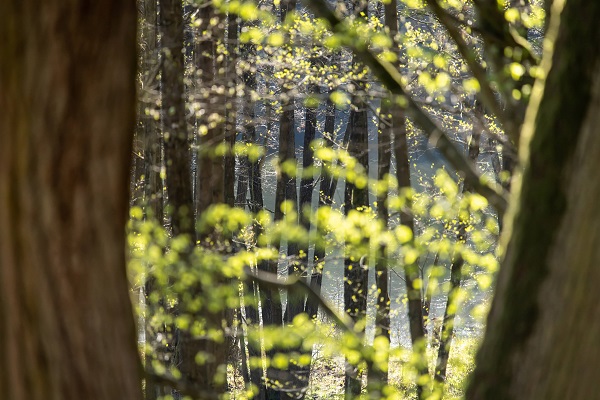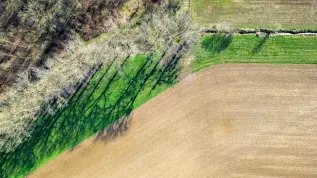
To protect nature effectively means to protect it with people, not without them or against them, says Professor Kazimierz Rykowski, former Science Director of the Forest Research Institute, a member of the Royal Swedish Academy of Agriculture and Forestry.
Science in Poland: Is nature divided into 'untouchable' and 'exploited'?
Professor Kazimierz Rykowski: Nature is not divided; there is only one nature. We are the ones who divide it in various ways - for example, an anthropologist will say that there are alternative natures. For man, this approach is correct, but from the point of view of nature preservation it is not. That is why we have a problem with the definition of nature protection, because we have not determined whether 'to use' means 'not to protect'. In addition to loving the forest, man is also an economist that counts what he can profit from.
A forester profits from a tree as a raw material, which is why he wants to get rid of animals that eat trees. There are other consumers of trees, for example fungi and insects. Everything that stands in the way of achieving the goal is considered a pest. Forestry was not created to protect nature, but to fell trees, plant new ones and sell timber. And to ensure that it will never end. Until the 17th century, the human approach to forests was: I come in and cut. It was a plunderous, non-organized exploitation.
SiP: How should we look at it from the time perspective? How should we judge it?
KR: You can not confuse mistakes with ignorance. Forestry was not created to destroy nature, as some people think today, but to satisfy the then needs. Timber allowed us to build a civilization. It played a huge role in our history, we were building almost everything from it: tools, houses, transport. Without timber, there would be no mines or smelters. We should not be ashamed of it. A beautiful example is a paper book. Who would we be today if there were no books? And yet a tree must be cut in the process of creating a book.

SiP: Is man still part of nature?
KR: Certainly we are connected to nature with an umbilical cord that we will never cut. We emerged from nature and we are still a part of it. It is a mistake to use the division: us and nature, doing something for ourselves, and something else for nature. Ecology and economics are one and the same in the long run. We use the goods of the biosphere that arise in complicated processes of interdependencies of things that are alive and those that are not. Together with billions of organisms, we co-create conditions for life.
SiP: Is saying that we are above all this untrue?
KR: It only seems to us that we are. Anyway, the pandemic can significantly weaken this conviction. The image of domination is the product of our self-awareness. The same awareness should make us reflect that its emergence was possible only because we were not alone in the process of evolution: we formed the biosphere together with other organisms. The thought, which itself is a product of matter, should mobilize us to make an effort not to destroy the foundation of the continued development of life on Earth.
SiP: Are we not stuck in a strict division? One could say that man has achieved a lot, but also say that this was at the expense of the planet, and that we are no longer part of nature.
KR: This strict division causes conflicts, which means that we fail to notice other possibilities. I will use the forest again to illustrate it. This strict division that exists between timber production and intangible benefits that the forest gives us, should be alleviated by introducing the concept in which cessation of felling to protect is a form of use of the forest. People going for a lone walk in the forest, scientists collecting information, poets writing poems, painters and musicians inspired by the views and sounds of the forest - they also use the forest.
The definition of nature protection should change as should the definition of forestry. We should not delude ourselves that we will now establish something that will be in force forever. Forestry fell into this trap by failing to change certain definitions since the 19th century.
SiP: When did you feel that the existing concept of 'forest use' is outdated and should be changed?
KR: I remember an annual forest protection conference from the beginning of my professional work. Like all conferences, it was filled with reports, from which we learned about new methods for combating insects and fungi. There was also talk about new repellents - it was enough to put them on a tree to prevent deer and roe deer from eating it. In a word, the forest protection focused on the radical elimination of these elements that threatened the production targets. I started to wonder if the actions eliminating other organisms should be called the protection of the forest, or rather we should talk about timber protection in the forest. Forest protection should be something more.

In forestry, there was little talk about the ecosystem back then. The focus was on trees and tree stands. In all textbooks, forest protection was protecting tree stands against pests, animals, diseases, fires... Everything that was not a tree, was an intruder. Therefore, mass sprays in the 1950s, aimed at combating the pine tree web-spinning sawfly, were called a great forest protection success. Aircrafts were used to spray chemicals that destroyed all life. Today, forestry is ashamed of this, but when it was used, it was called a great technological achievement that saved the forests. Fanfares were less triumphant after combating the black arches in the 1980s, and combating of the spruce bark beetle in the Białowieża Forest was strongly contested and ended in the Court of Justice of the European Union. This is a brief history of the evolution of the man-forest relationship and social preferences.
Let me get back to that conference again. I also meant the aspect of language. We should not talk about protecting the forest when all we want to protect is timber. As Professor Witold Koehler said: 'Forest protection should not be limited to product protection, but include the protection of the production workshop'. This observation is accurate, but incomplete, because the forest ecosystem is not only a production workshop, a timber producer, but it is also its user. Millions of organisms use wood. There are no healthy forests without sick trees and dead wood.
SiP: Life in the forest is extremely rich.
KR: I noticed life in the forest when I was growing up in the countryside near a forest. In the course of my education, I lost a lot of this sensitivity. But what remains is enough that neither I nor many other foresters need to be convinced of the existence of life in the forest far richer than the life of trees.
SiP: How do you perceive the activities of ecologists and activists?
KR: Their actions are often extreme, but needed. Their main advantage is drawing attention to deficiencies in practices and the effects of ill-considered actions. Strong approach to the problem is acceptable as it reaches many people. I will never condemn such a method of showing the problem to those who have lost their sensitivity or are bound by routine, ignorance or fear.
I would also distinguish between ecologists - biologists, specialists dealing with ecological issues, and activists from ecological organizations, characterized by the power of objection. Thanks to ecological knowledge, public awareness changes and the need to protect nature grows. We start thinking about the values that must be protected if we are to exist.
SiP: Does this influence changes in the definition of nature conservation?
KR: The very definition of nature conservation is not changing yet, although, considering the changing state of nature and public awareness, the law on nature conservation should basically be written from scratch. The weaknesses of movements contesting the current situation is the lack of organizational or operational proposals on how to protect nature. The most frequently postulated 'untouchability' is only one category, and we need diverse protection for the whole nature.
SiP: What does diverse protection mean?
KR: We can get a higher degree of protection in one place and a higher timber production in another. In addition to reserves and national parks, we can have trees plantations and produce timber outside the forest. We have about 1.2 million hectares of agriculturally unprofitable soils and here we need a wise policy, using the successes of selection and technology. In this way, we can expand both raw materials base and places where nature rules, where evolutionary processes are protected. In 50 years, places such as the reference forest Szast in the Forestry District Pisz, left unmanaged after the hurricane of 2002, will provide us with another portion of invaluable knowledge. There are also moments when we need to protect a specific species, and this cannot be done without 'touching' nature. We have to interfere by creating appropriate conditions.

SiP: And why should we do it? Is nature protection about the survival of nature, or about the survival of the human species?
KR: If we agree that man is part of nature, this means that our lives are also on the line. But we want to protect nature perhaps also because of a remorse, because we actually choked the planet. Climatic changes have made us aware that it's not about one forest, it's about the entire biosphere. We are squeezing the planet like a lemon.
I think we got scared of that. But fear is not everything. There is also pride. After all, man is proud of our development. And now it's time to reflect. Literature and art, close-up between biological and humanistic sciences, undoubtedly helps us in this. Our awareness tells us that we should help the exploited planet. We must take responsibility.
The return to lost values is possible. I think that getting close to nature and restoring the sense of identity will be the next phase of human development and civilization progress. This is the movement towards the future, towards maintaining the sustainability of life. Maybe a step into the Post-Anthropocene?
SiP: Is that why you came up with the term 'the fourth dimension of the forest'?
KR: A three-dimensional space describes the materiality of the forest quite well, but it does not exhaust its meanings. The forest is a living centre in a broader, intangible, and therefore spiritual dimension and many people who spend time in the forest see and feel it. This is evidenced by the great achievements of literature, painting, music. Maybe the fourth dimension of the forest is the time, as in art? Maybe it is movement and variability? The problem is that we do not have tools to measure it. We also do not know the concepts.
SiP: Why should we measure the 'spiritual dimension of the forest'?
KR: It is worth measuring the 'spiritual dimension of the forest' to manage it better, more responsibly and more consciously. That would translate into wise policies and a more effective law. Economists, and consequently also politicians, dislike the word 'priceless'. It's hard for them to accept something like 'a value in itself'. According to the 1997 Forestry State Policy, forests became an element of contemporary and future civilization thanks to the work of man. Does this means that the forest without human work is without value? And it is not just foresters that have a problem with axiology. For example, the value of human life has been calculated, hence we have 'life insurance', but in a colloquial conversation everyone will say that human life is priceless. We see the value of existence only when something disappears. Just like with health. Countries of the Middle East or North Africa already know what it means to have a desert where the forest once was.
SiP: In the years 2013-2015, you worked with a group of experts on the National Forestry Programme. The aim of that work was to create a vision of forestry in two perspectives: 2030 and further, 2080. What were the most important conclusions regarding nature protection?
KR: To protect nature effectively means to protect it with people, not without them or against them. It is impossible to protect nature without a social context.
Interview by Urszula Kaczorowska
PAP - Science in Poland
uka/ ekr/ zan/ kap/
tr. RL













